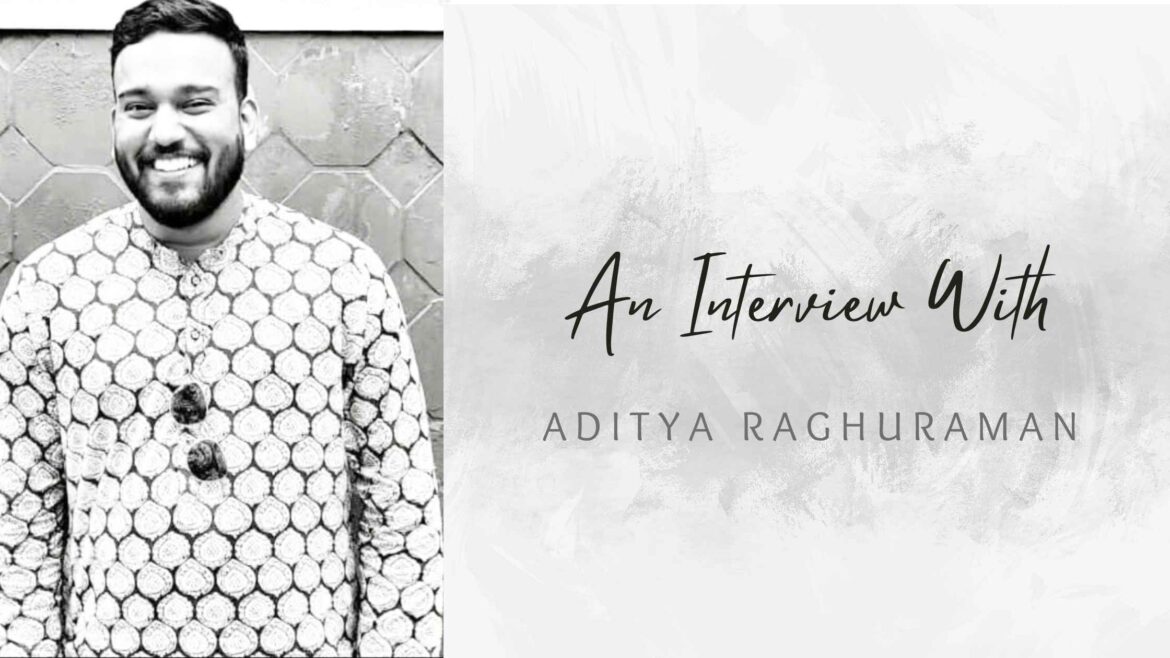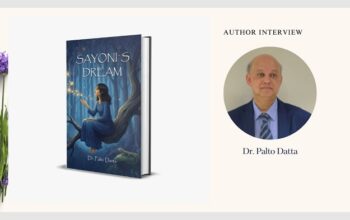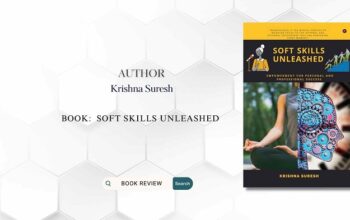Aditya Raghuraman is a 29-year-old poet and author from Bangalore, Karnataka. Known for his poetry collection Shards of my Soul and his collaborative work The Unknown, In Words, Aditya brings a fresh perspective to contemporary literature. In his latest book, The Overthinker’s Guide to Underthinking, he offers practical strategies to overcome overthinking and embrace a more mindful, fulfilling life.
The Literature Times: Aditya, what was the driving force behind writing The Overthinker’s Guide to Underthinking? Did you draw from your own experiences with overthinking?
Aditya Raghuraman: Yes it is all a result of my personal accomplishments and setbacks that I faced that inspired me to bring this to the world. Overthinking is a life altering factor which can either make or break you, often it ends up breaking us, it all depends on how much we let it affect or alter us.
The Literature Times: In your book, you offer strategies like mindfulness techniques and cognitive reframing to combat overthinking. Which of these techniques has been the most transformative for you personally?
Aditya Raghuraman: Positive affirmations and law of attraction are two techniques that I very strongly believe in and try to advocate and inculcate in my day to day as much as possible, we all need that support and extra push to get things done, in the end it all comes down to getting it done with a positive mindset.
The Literature Times: As a poet and an author, how does your approach to writing differ between poetry and prose?
Aditya Raghuraman: It is a stark difference to each other, Poetry is all about conveying emotions, there is no science to it, however prose comes with its own set of challenges, it must be impactful and to the point, this way both require complimentary skill sets. I will end this question with this line, all poets can write prose, not everyone can write poetry. You need to have both the skill sets.
The Literature Times: Can you share a bit about your creative process? Do you find that your poetry influences your approach to writing books like The Overthinker’s Guide to Underthinking?
Aditya Raghuraman: For me writing is always a stress buster, I truly enjoy it, whatever I am unable to say it out loud, I found solace in words, sometimes this works the other way around as well. In continuation to the previous question, my poetry influences my take on writing fiction/Non-Fiction, I try to inculcate the link between logic and emotion, because in contrary to the belief that logic supersedes emotion, I disagree. It should always be a right blend of logic and emotion.
The Literature Times: Overthinking is something many people struggle with. What do you think is the biggest misconception people have about overthinking?
Aditya Raghuraman: The biggest one is that when you accept that it is you who is at fault, the blame and the guilt that we assign ourselves because of the consequences that come out of it is what makes it even harder. The minute we learn to manage it in an effective manner, half the battle is won.
The Literature Times: You emphasize the importance of embracing uncertainty. How can readers begin to accept that not everything needs to be perfectly planned or figured out?
Aditya Raghuraman: We need to understand the fundamental concept about uncertainty, change is the only thing that is constant. Without change and most importantly sudden change, mankind could not have evolved. Just trust the process and go with it with a positive mindset, overplanning is nothing but a subset of overthinking. You can either embrace uncertainty with open arms and come out richer and wiser or avoid the inevitable, devoid of a challenging experience.
The Literature Times: How do you manage the balance between writing and maintaining your personal life? Has being an overthinker ever impacted this balance?
Aditya Raghuraman: It definitely has, there have been times when I could not get to sit and compose my poems and write my posts, because of the immense amount of stress that I had due to the incessant chatter in my head, I knew what had to be done, yet I was trapped in the vicious cycle, personal life lost its flavor and joy that I derived through my literary side. I realized that it had to change, then this book happened, and I am thankful for it. Now to answer the how? It is all to do with your family, when you have a strong support system in your life, anything is achievable.
The Literature Times: In Shards of my Soul, your poetry dives deep into emotional vulnerability. How do the themes of vulnerability and self-reflection carry over into your non-fiction work?
Aditya Raghuraman: It is very important to accept and do something about it, being vulnerable is not bad, doing nothing about it is where the problem arises. In all the chapters in my book there is one common thing, practicality and true sense of the human psyche. Self-introspection is of the utmost importance to attain a state of mental well-being. This is what I have tried to convey to my readers.
The Literature Times: How do you stay motivated when working on long projects, especially when tackling complex topics like mental health and self-awareness?
Aditya Raghuraman: It is all about avoiding mental exhaustion and pacing yourself. In any creative journey, it is important to take pauses wherever required, slowing down does not mean stopping. That moment of not doing anything and letting the gravity of your words mull over and sink in is very important, to adapt and change whatever was not right and you had not realized the first time around.
The Literature Times: What do you hope readers will take away from The Overthinker’s Guide to Underthinking? Is there a specific change or shift you want to inspire in their lives?
Aditya Raghuraman: It is okay, to be not okay. There would be difficulties and stressful situations in our day to life, we just need to stop and adapt. Our ability to adapt is and will continue to be our greatest strengths, believe in the light at the end of the tunnel and that silver lining in every dark cloud. Just tell yourself, ‘It is a phase, this too shall pass’



